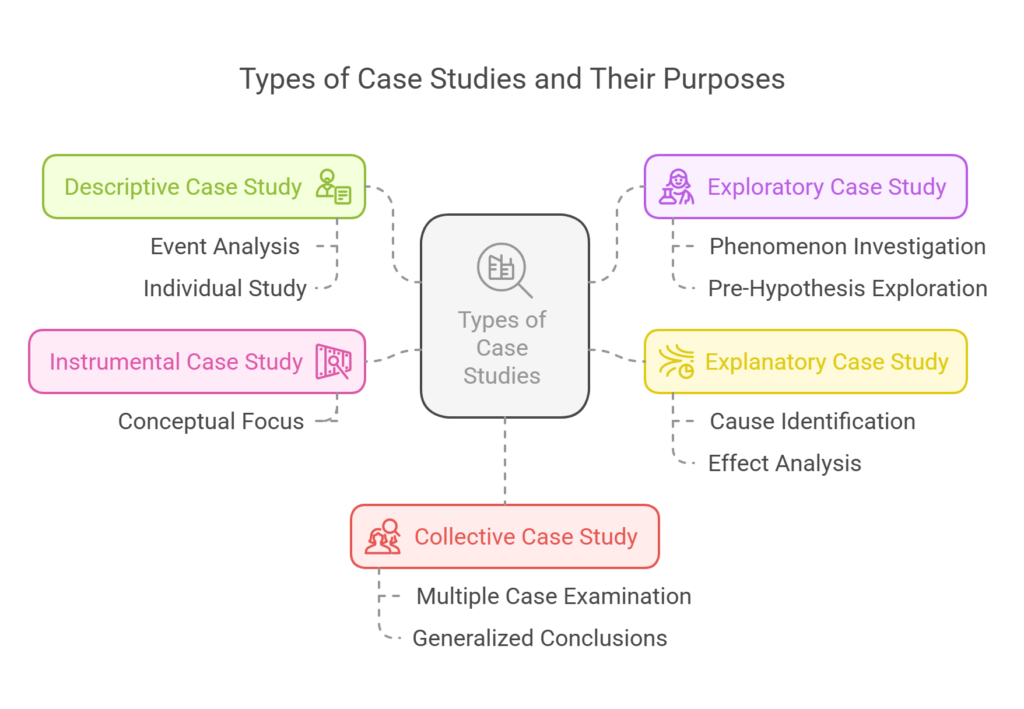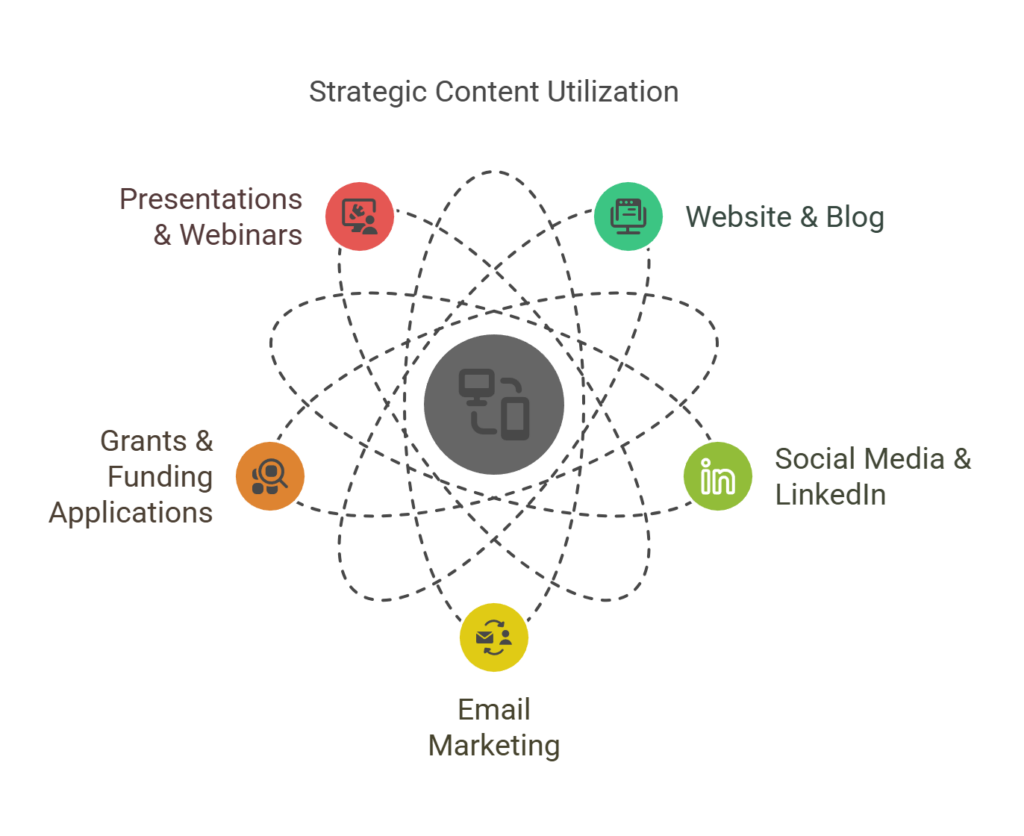I just started a nonprofit and used a case study to secure a grant of over $100,000. Then, the same case study helped me secure a publishing contract for a book. I want to help you do the same.
In the fields of mental health, wellness and social justice, professionals are committed to making a real-world impact. However, demonstrating effectiveness, securing funding, and building trust with clients and stakeholders can be challenging. This is where case studies come in. A well-structured case study provides an in-depth analysis of real-life situations, offering data-driven insights and compelling case study examples that drive engagement and decision-making.
In this article, we will explore how writing case studies benefits mental health professionals and social justice practitioners, along with case study templates, best practices, and content marketing strategies to maximize their reach.
What Is a Case Study?
A case study is an effective format that presents a detailed examination of a specific case, individual, or group of people within a real-world context. These studies are widely used in business, academia, and healthcare, but they are especially valuable for those working in mental health and social justice.
Types of Case Studies
Understanding the type of case study you need is key to developing a great case study. Common formats include:
- Descriptive – Provides a detailed account of a particular event, individual, or issue.
- Exploratory – Investigates a phenomenon before establishing a hypothesis.
- Explanatory – Explains cause-and-effect relationships within a real-life scenario.
- Instrumental – Focuses on broader concepts through the study of a particular case.
- Collective Case Study – Examines multiple cases to draw generalized conclusions.
For practitioners, choosing the right case study format ensures clarity and impact.

Why Case Studies Matter for Mental Health & Social Justice Professionals
1. Real-World Evidence Builds Credibility
A business case study demonstrates the effectiveness of an approach or intervention. Whether you are a therapist, counselor, social worker, or activist, having real-life success stories builds credibility and stakeholder trust.
For Mental Health Practitioners
Showcasing a therapy model that successfully improved a client’s well-being can attract potential customers and referrals.
For Social Justice Advocates
Demonstrating the impact of a policy or program on marginalized communities helps in securing legislative support and funding.
2. Engaging Storytelling Inspires Action
A good case study tells a customer story that resonates emotionally. People connect with narratives rather than abstract data.
Example: A compelling case study on reducing racial disparities in mental health care could influence policymakers to push for funding reforms.
Use of Testimonials: Integrating customer quotes makes your case study more relatable and persuasive.
3. Justification for Grants & Funding
Funding bodies and donors require proof of effectiveness before investing in initiatives. A well-structured executive summary within a case study highlights key metrics and possible solutions, justifying investment.
Example: A nonprofit addressing homelessness can use case study analysis to illustrate how their interventions helped individuals secure stable housing and mental wellness support.
4. Learning & Professional Development
Practitioners refine their methodologies by analyzing past successes and challenges through case study templates. Additionally, these studies serve as docs for training and knowledge-sharing.
For Mental Health Professionals: Learn how to adapt therapeutic techniques for diverse populations.
For Social Justice Organizations: Identify which advocacy strategies work best in different community settings.
5. Influencing Policy & Systemic Change
Lawmakers and decision-makers rely on data-driven research. An example provides concrete evidence to advocate for social justice reforms.
Example: A case study analysis on the mental health impact of incarceration can support alternative sentencing programs and rehabilitation policies.
6. Enhancing Marketing & Visibility
For independent practitioners and organizations, case studies function as a content marketing tool. They establish authority and differentiate services in a competitive field.
For Private Practices: Attract more clients by showcasing success stories.
For Advocacy Groups: Secure partnerships and funding by presenting effective results.
For Social Media & LinkedIn: Share key insights through infographics, bullet points, and main points to increase engagement.
How to Write an Effective Case Study
Creating a great case study requires careful structuring. Follow this template to ensure clarity and impact:
1. Executive Summary
Summarize the key main points of the case study in a concise paragraph. This section should be engaging and include a call to action (CTA) for readers.
2. Background Information
Using a storytelling framework combined with science backed data helps connect with your reader’s emotions and prove that what you do matters in the world. Provide context by explaining the issue, problem, or pain points that led to the intervention. This section should be backed by data-driven insights.
3. Methodology
Explain how the intervention was conducted, including:
- Specific case details
- Approach taken
- Tools, techniques, or policies implemented
4. Results & Key Takeaways
Present the outcomes with supporting metrics and testimonials. Use infographics for better visualization.
5. Conclusion & Call to Action (CTA)
Summarize findings and encourage action. If targeting potential custome rs, include a clear landing page link or social media CTA for further engagement. If you’re targeting donors, a clear call for donations with a direct link works best.
How to Use Case Studies for Maximum Impact
Once your case study is complete, repurpose it for various platforms to maximize its reach:
Website & Blog – Feature it on your site with a downloadable template.
Social Media & LinkedIn – Share key points with infographics.
Email Marketing – Send it to stakeholders and subscribers.
Grants & Funding Applications – Use it as a supporting document for proposals.
Presentations & Webinars – Showcase it as an example of impact.

Get Your Case Study Started Today!
For mental health professionals and social justice advocates, case studies are powerful tools for decision-making, advocacy, and professional growth. Whether you’re looking to secure funding, influence policy, or build credibility, an effective case study provides the proof you need to drive change.
Need help crafting a good case study? Whether you require assistance with proofreading, structuring, or marketing, we can help you create a great case study that amplifies your impact.
Contact us today for expert guidance on writing and sharing case study examples that make a difference!


